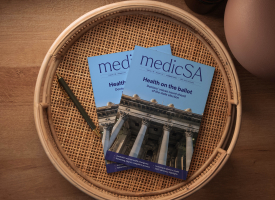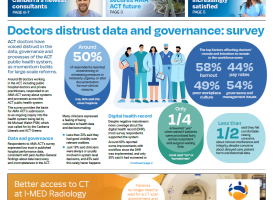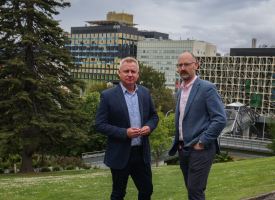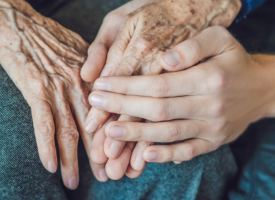Viability of General Practice and COVID outlook as zero isolation approaches
Transcript: AMA Vice President, Dr Danielle McMullen, on ABC News Radio, Thursday, October 2022 Subject: Viability of General Practice and outlook for COVID ahead of end of isolation
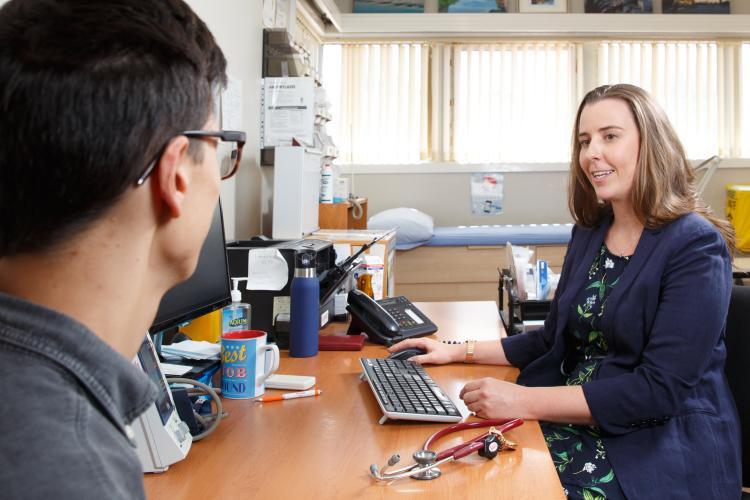
HOST THOMAS ORITI: GPs, academics, politicians, and consumer groups have gathered for a crisis summit in Canberra to discuss solutions and reform. It's an event that was called to discuss the future of general practise across the nation as workers struggle with ever increasing pressures. And to see how it all went, we're joined now by Dr Danielle McMullen, Vice President of the Australian Medical Association, also a GP in Sydney's inner west in the suburb of Newtown. Dr McMullen, good morning and thanks for your time.
DANIELLE MCMULLEN: Good morning. Thanks for having me.
THOMAS ORITI: Tough times, of course, you know, off the back of the COVID pandemic, but I imagine a lot of people would argue that that's far from the end of the story. What sorts of stories have you been hearing about how doctors are managing their workloads at the moment?
DANIELLE MCMULLEN: We know the pressures on general practise were increasing even before COVID-19 and that really was just the cherry on top, but it feels like it's breaking the system. And as patients know, it's becoming ever increasingly difficult to see a GP quickly and the out-of-pocket costs for general practice are growing. And that's because we've got an archaic Medicare system that was built in the ‘80s for a time when you went to see your GP for simple problems, and we're now seeing much more mental health, mental illness, chronic and complex disease, and our Medicare system really doesn't reward that longer consultation and time with your GP and their practice team that we know patients value and what they need to manage their chronic illness.
THOMAS ORITI: Now, I understand the AMA has launched a plan then to improve that access. What does that plan entail?
DANIELLE MCMULLEN: Well, that plan really outlines those issues and the fact that we need Medicare reform to reward that longer consultation, the more complex care. We need involvement of the practice teams. So we need better remuneration for our practice nurses and other team members that can really assist in that complex disease. We need patients to be able to access after-hours care more easily and for that to be an attractive thing for doctors to be undertaking, it’s that care between 6 and 8pm when we know people need to see their GP. Along with that along some initiatives for aged care visits to improve the medical care in our nursing homes and some chronic wound care items for people, the half a million Australians living with a chronic wound.
THOMAS ORITI: You mentioned there, Medicare and the importance of that longer consultation. The Federal Budget's, of course, fast approaching under a new government. What are you hoping for?
DANIELLE MCMULLEN: We're expecting them to keep to their election promise of $750 million over the next three years. But we know that that's really a drop in the bucket for what general practice needs, and we're seeing that as a down payment. There is strong commitment from the current government to improve the parlous state of general practice but they really need to put some dollars behind that and really take the word of the profession seriously and of patients around Australia and make sure that they're investing in people's health and see general practice as an investment rather than a cost.
THOMAS ORITI: Is that how you feel at the moment that general practitioners aren't being taken seriously, in your words? And there's a view that even medical graduates might not be choosing that path in their studies to become a GP. They'll choose a speciality field instead and general practice is left by the wayside.
DANIELLE MCMULLEN: I think, for many decades now, it's a generational issue of successive governments underfunding general practice and a flow on of that cultural idea that general practice is somehow a lesser speciality. Now, we do undertake specialist training like any other medical specialists and we know that GPs love the work that they do, the variety of work and the rewarding nature of the work that we do, but that there is this culture in medical training and across the community of ‘just a GP’. And so we need to really work hard to turn that around. And it's not just financial investment, but it's also changes to the way perhaps we undertake medical training, the exposure that our junior doctors get to general practice so they really get an understanding of how that works when most of our training is undertaken in hospitals at the moment.
THOMAS ORITI: Dr McMullen, you're a GP in Newtown in Sydney's inner west. I started this interview by saying COVID is only part of the story, but I mean, how much of your workload is currently COVID based?
DANIELLE MCMULLEN: Look, we're obviously still taking significant measures to protect our most vulnerable patients. So we're still donning PPE every day and expecting our patients to wear masks to keep our vulnerable waiting room patients safe. But really, the pressure has been over those past two years with those ever-changing guidelines, the rapid switch to learning telehealth and how to incorporate that into our practice, and really managing the mental health and the fear in the community. It's your GP who is there to walk with you through that, help navigate the rules, and help navigate that real mental health impact that the past couple of years has had. And I think that's where myself and my colleagues are feeling it most is how we help walk with the community through this difficult time at the same time as managing it ourselves and the very changing rules.
THOMAS ORITI: You know, next week though, the 14th October, isolation requirements for those who test positive are being scrapped, those mandatory requirements. Now it's on the individual to isolate if they're sick. How are you feeling and how's the sector feeling ahead of those changes?
DANIELLE MCMULLEN: I think the sector is very nervous. We’ve known that eventually this was going to happen and that we would treat COVID-19 the way we do other respiratory illnesses. But it is so important that the community understands that just because the mandated isolation is dropped, that doesn't mean COVID is gone and that we do still need to be so vigilant to protect vulnerable people and that repeated infections can increase the risk of long COVID, which I've seen some disastrous effects from. And so we really encourage the community, if you're unwell with COVID or any respiratory cough, cold kind of illness, stay home, keep your distance from people, and really not being out and about in the community. Just because you're technically allowed to be, it's a responsible practise to stay home until you're feeling well.
THOMAS ORITI: On that, are you concerned about the nation's vaccination coverage? Because we've been hearing perhaps not as many people as doctors would have liked have gone for that third booster shot, let alone a fourth. Are you concerned they might now have waning protection? And let's not forget, there is still that never-ending risk of new variants as well.
DANIELLE MCMULLEN: You're exactly right, Thomas. Our population did a fantastic job of rolling up for their first and second doses, but that third and particularly fourth dose is lagging behind. And so particularly for people who've not had COVID recently, it's very important that you go and get that extra booster dose. For people who have had COVID, there's that few months to delay your booster because you've probably got a little bit of immunity from your infection. And the other group we're particularly worried about is children. Their vaccine rates in that 5 to 15-year-old age group are lagging behind a bit. And we know that they're back at school and back at sport and back at play dates, so it is time to make sure that kids are vaccinated and that we're really doing everything we can still to minimise the spread of COVID-19 in the community.
THOMAS ORITI: Dr McMullen, it's a pleasure. Thanks for joining us.
DANIELLE MCMULLEN: Thanks for having me.
